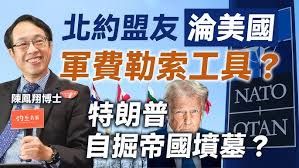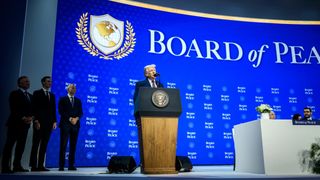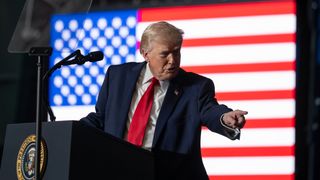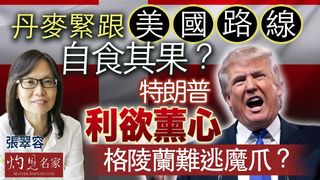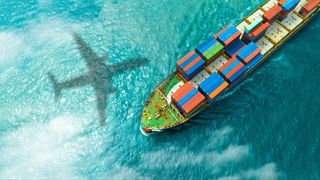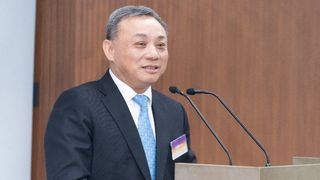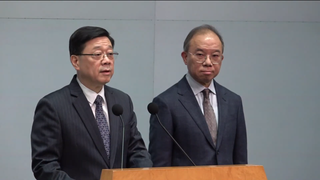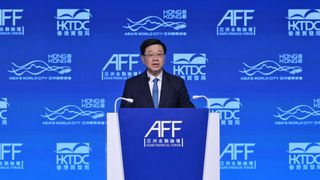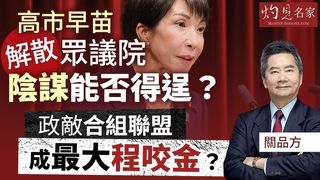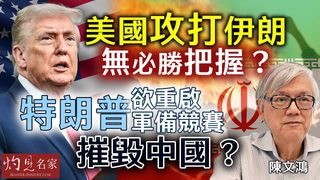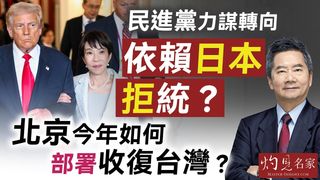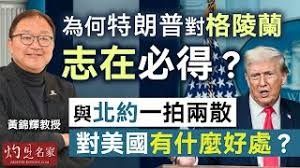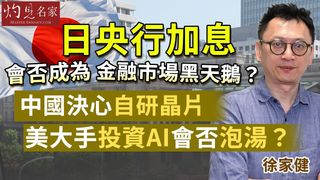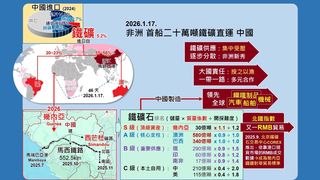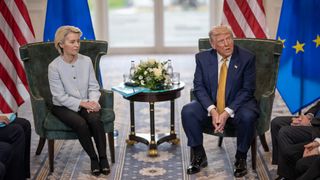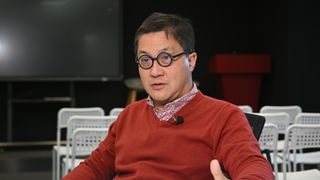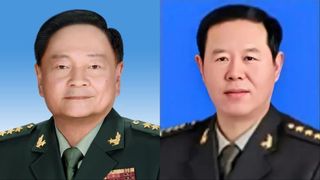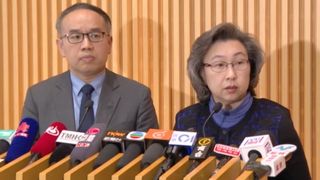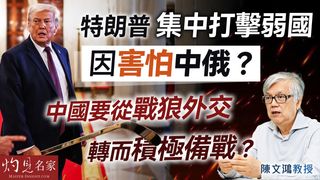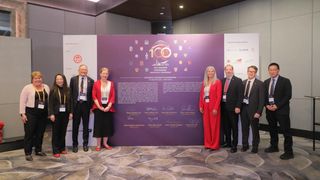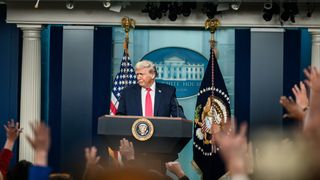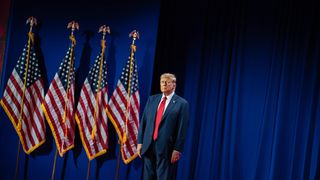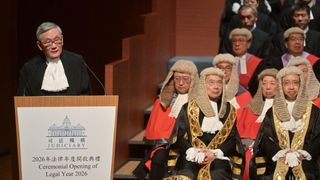隨着今年初特朗普2.0政府上台,結束俄烏戰爭的契機總算出現。首先,特朗普及其團隊擔憂烏克蘭治理的腐敗問題,認為美國助烏克蘭的軍援將損害其國家利益,加上美國總統特朗普與俄羅斯總統普京一直保持友好關係,美國外交上更偏向俄方。其次,特朗普政府認為歐洲國家對烏克蘭的軍事和經濟支持均不足。
在這樣的背景下,美國逐步從全力軍援烏克蘭的角色轉變為烏俄之間的調停人。
特朗普在白宮與烏克蘭總統澤連斯基會晤後不久,全球和美國本土的輿論都對他所受到的待遇感到震驚,隨後美烏關係出現戲劇性發展,特朗普政府與烏克蘭達成了一項礦產資源協議,內容是有關美國將如何幫助烏克蘭戰後重建。
美趁烏身陷困境圖利
若仔細分析這份關鍵的礦產資源協議,它反映美國對烏克蘭外交政策的轉變。一方面,它充當俄羅斯和烏克蘭之間的中間人,另一方面又承諾在戰後支持重建烏克蘭的經濟。這份協議似乎反映美國趁烏克蘭身陷困境而圖利。
美國在烏克蘭問題上的立場轉變令歐洲核心國家感到震驚,英國首相施紀賢、法國總統馬克龍和德國總理默茨試圖游說特朗普,避免他在外交上過分傾斜俄羅斯,三國的努力似乎取得了成效,俄烏雙方亦開始對話。
儘管俄羅斯與烏克蘭近期已交換戰俘,但兩國達成停火協議的機會依然渺茫,主要原因是雙方都不輕易退讓,令第三方進行調解或兩國直接談判都變得極具挑戰性。
不過,俄烏戰爭問題的關鍵在於,俄方提出的多項主要的要求都遭到烏方拒絕。
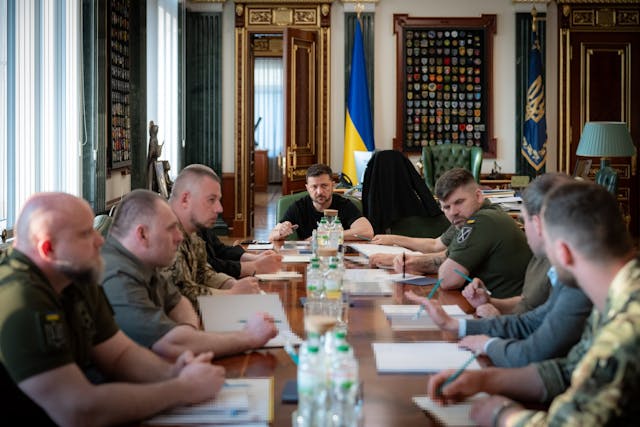
烏須遏制俄軍再擴張
首先,俄羅斯要求美國承認其吞併克里米亞的合法性,但烏方拒絕接受。其次,俄羅斯希望將頓內茨克、盧甘斯克、札波羅熱和赫爾松等烏東四州納入俄治範圍。目前四州尚未完全被俄軍佔領,因此烏方必須確保它進行任何談判前不能失去四州的土地。
簡言之,烏克蘭為了提升其在談判桌上的籌碼,它必須遏制俄羅斯進一步的軍事擴張,這也是出於烏克蘭國家安全利益的考量,這或許能解釋,每次俄烏談判停火,烏軍仍然持續攻擊俄羅斯。
最近「蜘蛛網行動」中,烏克蘭無人機戰術成功襲擊了俄羅斯軍用飛機,就是一個很好的例子。
對俄羅斯來說,它就停火協議提出最主要的要求是,北約必須停止向包括烏克蘭在內的東歐地區擴張。自前蘇聯解體以來,北約一直在歐洲擴張成員國,但這對俄羅斯構成了巨大的安全威脅,因此普京認為入侵烏克蘭作為應對北約進一步的威脅是必要的。
然而,俄羅斯要求烏克蘭放棄加入北約,這必然會引起英國、法國、德國以及其他歐洲小國(如北約成員國愛沙尼亞、拉脫維亞和立陶宛)的關注。這些國家擔心俄羅斯的長期領土野心在於恢復大俄羅斯或前蘇聯的彊界。
此外,俄羅斯也要求烏克蘭舉行總統選舉,但只要戰爭持續下去,烏克蘭就不可能如俄方所願而舉行選舉。
最後,俄羅斯也要求歐美國家解除對其的經濟制裁,但如果俄方不作任何讓步,很難預見歐美會讓步。
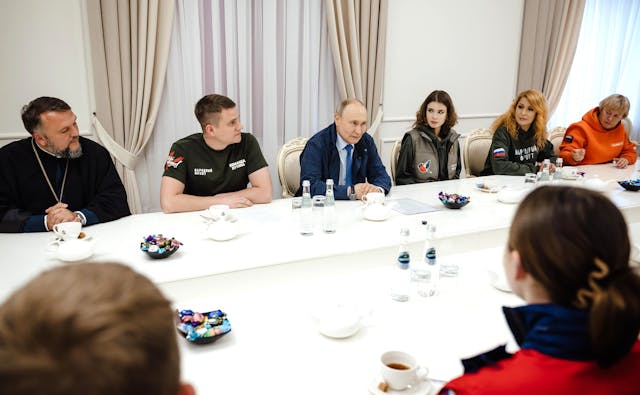
中巴參與調解 或能打破僵局
在目前僵局下,需要其他更有效的調解人,例如中國和巴西,它們已在2024年5月提出了一項停火方案。
中巴方案的第一原則就是俄烏都不應將戰事升級,不得挑釁對方,但迄今為止烏克蘭和俄羅斯尚未這樣做到。如果無法嚴格遵守和執行這項原則,俄烏戰爭無可避免持續下去。
當然,美國、英國、法國和德國是否願意讓中國和巴西進行調解亦成疑問,美國不希望其最大的經濟對手中國介入俄烏戰爭。
總而言之,在當前局勢下,俄烏戰爭的和平解決極為困難,因為俄方提出的過高要求必然遭到烏方拒絕。儘管特朗普政府創造了與俄羅斯就烏克蘭問題直接談判的機會之窗,但任何將烏克蘭排除在外的做法都會讓英法德三國感到不安,並懷疑其出賣了受北約保護的歐洲國家利益。英法德三國的確可以遏制美國在俄烏戰爭中的外交政策行為,但當前的僵局難以輕易打破。
中立國家或組織可成雙方對話平台
就烏克蘭戰爭的前景而言,有幾種可能的場景。
首先,戰爭將持續下去,但烏克蘭人民的苦難仍將持續,希望這場戰爭不會導致烏克蘭失去更多領土。從目前戰況看來,俄軍實力不強,因為它需要依賴北韓軍隊來應對烏軍在庫爾斯克的行動。
第二種情況是聯合國和歐洲安全與合作組織(OSCE)等國際組織,呼籲俄烏雙方保持克制,以打破目前的僵局。設立一個中立機構來監督停火協議,或許可以為衝突各方建立信任提供一個起點。此外,俄烏也可以利用外交渠道,跟瑞士和/或奧地利等在此議題上保持中立立場的國家對話。
第三種情況,特朗普政府因俄羅斯拒絕就其最高要求讓步而感到沮喪,可能會對俄羅斯實施更多經濟制裁。然而,對俄羅斯的經濟制裁似乎影響有限,如果目標國家擁有其他經濟管道來維持國家生存和復原力,經濟制裁通常對其影響有限。
最後一種情況是別無選擇,只能等待普京總統的領導權交接──而這可能需要數年時間。如果真是這樣,俄烏戰爭可能會持續數年,令人遺憾的是,無法和平解決。
Will there be a peace settlement on the Russo-Ukrainian War?
Although Russia and Ukraine have recently exchanged prisoners of war, the prospects of reaching a peace settlement over the Russo-Ukrainian war remains difficult mainly because both sides, particularly the Russian side, have made maximal demands that make either third-party mediation or direct negotiation a highly challenging task.
It must be admitted that a window of opportunity of ending the Russo-Ukrainian war has emerged with the victory of the second Donald Trump administration in the US. First, the Trump administration has been adopting a critical approach to reversing the previous Joe Biden administration’s foreign policy of supporting Ukraine. Trump and his associates believe that Ukraine’s governance has been characterized by corruption, and as such, the US military assistance to Ukraine was a controversial move that undermined the US national interest. Most importantly, Donald Trump’s foreign policy is to move to befriend with Russia, as his personal relations with President Putin have remained cordial. This explained why Trump and his Vice President JD Vance first met President Zelensky of Ukraine in the Oval Office – a meeting that marked how the Trump administration expressed its dissatisfaction with the Ukrainian government.
Second, the Trump administration has perceived the European countries’ support of Ukraine, both militarily and economically, as inadequate. As a result of the “America First Policy,” the Trump government has distanced itself a bit further from Ukraine while moving toward in-depth discussions with the Russian side over a settlement on Ukraine war. In other words, the US has moved from the position of backing up Ukraine militarily and fully to an intermediary between Ukraine and Russia.
But soon after the Oval Office meeting with President Zelensky, the world opinion, and domestic public opinion, were shocked over how he was treated. The Trump administration then moved to reach a mineral resource agreement with Ukraine on how the US will help the country in the post-war reconstruction process.
A closer look at the mineral resources agreement, however, tell us how the US has changed its foreign policy toward Ukraine: on the one hand, it is acting as a middleman between Russia and Ukraine, but on the other hand it promised to back up Ukraine in the post-war economic reconstruction. Yet, from a critical perspective, the agreement gave an image of how a superpower seems to take advantage of the difficult and pitiful predicament of Ukraine even during the post-war era in which Ukraine is bound to lose essential territories. Critics of the agreement also said that most of the mineral resources in Ukraine are in its eastern regions which are now mostly occupied by the Russian military.
The shift in the US position on Ukraine has shocked and alarmed the core European states, notably UK, France and Germany that are determined to prop up the Ukrainian government and that promise more military support. The UK government has expanded its rearmament with the intention of playing a more assertive role in propping up the military supplies to Ukraine. UK Prime Minister Keir Starmer, French President Emmauel Macron and German Chancellor Fredrich Merz have all attempted to lobby President Donald Trump and to refrain him from moving away from Ukraine in favor of Russia over the Russo-Ukraine war. This strategy seems to rein in the US foreign policy toward Ukraine war. By leaning to the side of Russia, the US has triggered the fear of its traditional European allies, which now see the Trump administration as unstable and perhaps unreliable in dealing with the impasse over Ukraine war.
The attempts of UK, France and Germany to rein in the foreign policy U-turn of the US government have appeared to work. At one point, when the US government failed to reach a deal with the Russian counterpart over a compromise on the Ukraine war, President Trump said openly that President Putin was “not serious” in reaching an agreement and that the US would perhaps launch severe sanctions over Russia.
The crux of the problem over the Russo-Ukrainian war is that while the Russian side has made maximal demands, the Ukrainian government has also refused to make any concession.
The Russian administration has been adopting a maximal approach to advancing its own national security interest in the negotiations with the US and Ukraine. First, Russia demands that the US should recognize its annexation of Crimea – a demand that the Ukrainian side indeed does not want to accept although President Trump had mentioned openly that this Russian demand was directed at the US. Second, Russia wants to absorb all the four eastern Ukrainian regions into its territories, namely Donetsk, Luhansk, Zaporizhzhia and Kherson. In September 2022, Russia announced the annexation of these four regions – an annexation that must be rejected by Ukraine. Since 2014, there have been pro-Russian separatist activities in the regions of Donetsk and Luhansk.
Donetsk and Luhansk have coal deposits that Ukraine will lose if it accepts the Russian territorial annexation. From Ukraine’s perspective, the four oblasts (regions) above have not been fully occupied by the Russian military, and as such, any negotiation must proceed with the current territories retained by the Ukrainian military.
This may also explain why the Ukrainian military has continued to attack the Russian side whenever there were reports about negotiations between Ukraine and Russia directly over the war. From Ukraine’s national security interest, its military must repel and resist further Russian military encroachment for the sake of maximizing the Ukrainian bargaining power over the negotiating table. The recent Spiderweb operation in which Ukrainian drones successfully attacked the Russian military aircrafts was a good example showing that Ukraine adopts the tactic of continuous resistance and offensive of maximizing its bargaining power in case of any negotiation with the Russian side.
The most important demand from the Russian side is that NATO expansion to the eastern Europe, including Ukraine indeed, must be stopped. Since the collapse of the former Soviet Union, NATO has been expanding its memberships in Europe – a huge security threat to Russia, however. Before the Russian invasion of Ukraine on February 24, 2022, Ukraine did try to enter NATO but the process of formal admission was long. Ukraine’s intention of joining NATO triggered the preemptive attack by Russia, for President Putin believed that the invasion was necessary to ward off the further threat from NATO. In other words, Russia tried to keep Ukraine a buffer state in favor of the interest of Moscow – an attempt that the Zelensky administration rejected. Hence, the current demand of Russia that Ukraine must not join NATO is bound to be difficult, because Ukraine has already been territorially invaded, and it must need at least some military protection from NATO to stop further Russian aggression.
The Russian demand on Ukraine’s abandonment of joining NATO is bound to be seen by UK, France and Germany as well as other small European states (like Estonia, Latvia and Lithunia which are members of NATO) that see Russia as having the long-term territorial ambition of restoring the boundaries of the Greater Russia or the former Soviet Union. Hence, unless Russia made concessions on its demand of disallowing Ukraine to join NATO, the Russo-Ukraine settlement remains exceedingly difficult.
Russia also demands that presidential election should be held in Ukraine, but from Ukrainian perspective, as long as the war persists, election cannot be held. Obviously, the Russian side wants to see a new president in Ukraine, but it is doubtful whether Ukraine will hold a presidential election without the Russian side making any concession on the negotiating table.
Finally, Russia also demands that the US and European states should lift their economic sanctions on Moscow. But if the Russian side does not make any concession, it is difficult to foresee any concession from the US and the European states over economic sanctions.
From the Ukrainian perspective, it cannot accept the Russian territorial demands of recognizing the annexation of the four eastern regions. Doing so would be tantamount to military and political surrender. Ukraine is now relying on the core states of UK, France and Germany to rein in the Trump administration on the one hand and to provide Kyiv with military weapons on the other hand.
Under the currently deadlocked circumstances, there is a need for other more effective mediators, such as perhaps China and Brazil which produced a proposal in May 2024. First, both Ukraine and Russia must not expand their battlefields, must not escalate fighting, and must not provoke the other side – yet so far Ukraine and Russia have not done so. Second, both sides should have negotiations and dialogue. Third, both sides should carve out a humanitarian corridor with humanitarian aid to women, elderly and children – again Russia and Ukraine have not achieved this principle. Fourth, both sides must avoid the use of weapons of mass destructions – so far fortunately Russia and Ukraine have adhered to this principle. Fifth, any attack on nuclear power plant must be avoided – so far Ukraine and Russia appear to refrain from doing so. Sixth, international cooperation in protecting the security of critical infrastructure like oil and gas pipelines is necessary.
If principle one of the Sino-Brazilian proposal is not strictly observed and followed, the Russo-Ukrainian war persists. Of course, it is doubtful whether the US, UK, France and Germany would like to envisage any possible mediation from China and Brazil, because doing so means that US as a superpower and the core European states cannot come up with a peace settlement over the Ukraine war. The US does not like its top economic enemy, namely China, to intervene in Ukraine war. Some critics of the Trump administration have already argued that it has already reversed Henry Kissinger’s foreign policy of utilizing China to deter and contain the former Soviet Union. In other words, the Trump government is seemingly siding with Russia to deter and contain China.
In conclusion, under the current circumstances, a peaceful settlement over the Russo-Ukrainian war is exceedingly difficult because the Russian side makes maximal demands that are bound to be rejected by the Ukrainian counterpart. Although the Trump administration has created the window of opportunity of negotiating with Russia directly over the Ukrainian settlement, any exclusion of the Ukrainian side would make UK, France and Germany uneasy and suspicious of a sell-out to the interests of those European states under NATO protection. UK, France and Germany can indeed rein in the foreign policy behavior of the US over the Russo-Ukrainian war, but the current deadlock cannot be resolved easily.
A new Cold War is lingering on in Europe with profound distrusts toward Russia, but it is now characterized by a far more uncertain US position as its foreign policy has been characterized by uncertainties and oscillations under the second Trump administration.
In terms of the prospects of Ukraine war, there are several scenarios. First, the war will be prolonged but the sufferings of the peoples in Ukraine will persist. Hopefully, the war will not lead to a scenario in which Ukraine may lose more territories. It looks as if the Russian military is not so strong as it has relied on the North Korean military to tackle the Ukrainian military activities in Kursk. New mediators like China and Brazil might be needed in the Russo-Ukrainian war, but this is quite unlikely as it would be opposed by the US, UK, France, and possibly Germany.
Considering the current impasse, international entities and organizations, such as the United Nations and the Organization for Security and Co-operation in Europe, may have to intensify their efforts to facilitate dialogue and call for restraints from both Russia and Ukraine. The deployment of a neutral body for monitoring ceasefires and ensuring compliance could offer a starting point to build trust between the conflicting parties. Moreover, leveraging diplomatic channels with nations that have maintained a balanced and more neutral stance on the issue, such as Switzerland and/or Austria, may provide alternative avenues for negotiation.
The third scenario is that, frustrated by the refusal of Russia to make concessions over its maximal demands, the Trump administration may apply more economic sanctions over Russia. However, economic sanctions over Russia have appeared to have limited impacts, because Russia’s harmonious economic relations with other countries, such as China and North Korea, can compensate for the western sanctions. In international politics, economic sanctions usually have limited impacts on the target state if it has other economic conduits for state survival and resilience. The last scenario is that there is no choice but to wait for President Putin’s leadership succession – a scenario that will take some years. If so, the Russo-Ukrainian war is likely to drag on for some years without, sadly, peaceful settlement.
原刊於澳門新聞通訊社(MNA)網站,本社獲作者授權轉載。(原文按此)






